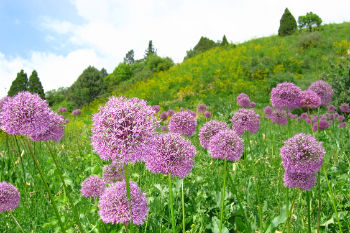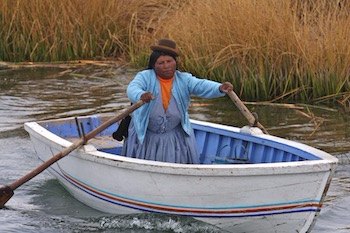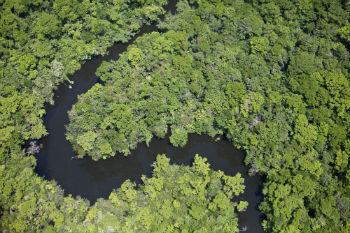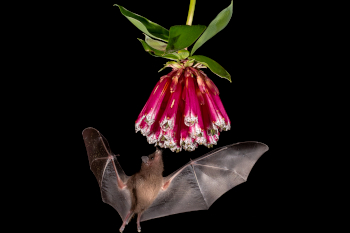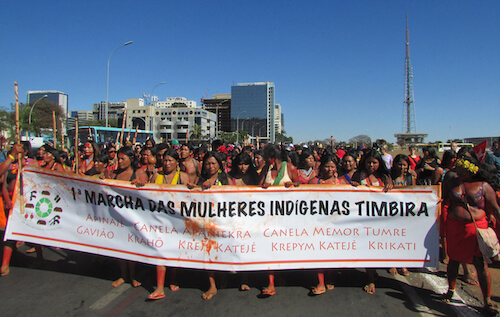Main menu
CEPF is a joint initiative of l’Agence Française de Développement, Conservation International, the European Union, Fondation Hans Wilsdorf, the Global Environment Facility, the Government of Canada, the Government of Japan and the World Bank. A fundamental goal is to ensure civil society is engaged in biodiversity conservation.
Visitez le site français コア情報の日本語翻訳を読むOr use Google Translate to translate the English site to your language:
GTranslate
Grantee Spotlight: Juliana Noleto
An anthropologist supporting Indigenous communities in Brazil
By: Marsea Nelson, CEPF senior communications manager
22 June 2021
22 June 2021
This article is part of our 2021 blog series in which we highlight specific individuals behind CEPF's grantee organizations.
As project coordinator for Centro de Trabalho Indigenista, anthropologist Juliana Noleto works with the Timbira Indigenous people in the Brazilian Cerrado, helping to strengthen their role in directing what happens to important conservation areas and the natural resources within them.
With help from CEPF funding, the organization has supported a delegation of 120 Timbira women to participate in the first Indigenous Women's March, organized seminars and workshops, installed two solar energy systems and internet to support communication and, most recently, helped combat the spread of COVID-19 in Timbira villages by supplying hygiene products and personal protective equipment.
We caught up with Noleto to learn more about her work, her love of the Cerrado and the plight of Brazil’s Indigenous peoples.
When you were a child, what did you want to “be” when you grew up?
I have always been very interested in the areas related to the social and human sciences. I liked to study Portuguese, history and geography and the relationship between people and the place where they live, although I wasn't sure what that meant in terms of profession!
What is your favorite place in nature to visit and why?
My favorite places are the Cerrado’s rivers and waterfalls. I love to walk trails in the Cerrado and observe the beautiful landscapes, the detail of the vegetation, the birds. And I really like rivers.
Perhaps this is because I was born in Maranhão, a city that is bathed by the Tocantins River, and part of my family comes from a very beautiful city that is located in Chapada das Mesas, which today is an important national park in terms of preserving the Cerrado.
What is your favorite species and why?
I really like Jatobá, which is a beautiful and important tree in the Cerrado, but my preference is the Bacuri, a tree that—besides giving beautiful flowers and representing the Maranhão savanna (as well as the Amazon)—has a delicious fruit and is very important for the regional population.
What do you consider your biggest professional achievement?
Undoubtedly, my work over the last several years with the Timbira peoples from Maranhão and Tocantins, who are Indigenous peoples of the Cerrado. They are tireless fighters for the conservation of the biome and its traditions.
Indigenous peoples face a serious struggle with the management of their lands in the current political context. It is very sad to see the dismantling of their rights, which directly affects the environment in which they live.
Is there anything about you that might surprise people?
Hard question! But I love to sing and play the guitar, in an amateur way.
Conservation work can be draining. How do you recharge?
Yes, conservation work is very difficult, especially in the current political context. I recharge with family and friends. Before the pandemic, I enjoyed taking a good waterfall bath!
If you could go back in time and do anything differently in your career, what would it be?
I wouldn't do anything differently. I love my job. I am very proud of what I do, and I am very happy. Perhaps, if I could, I would have more time to study and do my doctorate, which is a dream that I still intend to realize!
Juliana’s answers have been translated from Portuguese.
